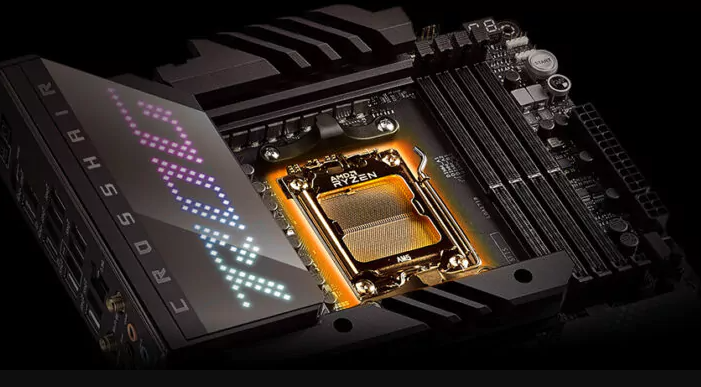News
GIGABYTE and ASUS Motherboards Have AMD Ryzen 7000 Voltage Issues Despite BIOS Updates

Both of these firms have released upgraded versions of their BIOS, each of which has a maximum voltage configuration of 1.3 volts. However, neither of them has been successful in controlling the processor’s usage to remain within the allotted limit. Both GIGABYTE and ASUS are up against similar issues in terms of voltage constraints on AMD Ryzen 7000 processors, which could result in burnout of the CPU and the motherboard.It is essential to underline that AMD set the 1.3v restriction in order to protect their processors from being damaged. This point cannot be overstated. At first, it was thought that only Ryzen 7000 X3Ds, which are the only ones to use the 3D V-Cache memory chip, were affected by this issue.
However, additional research has shown that Ryzen 7000 machines that do not include this extra memory are also susceptible to the issue. Both ASUS and GIGABYTE have come out with updated versions of their BIOS in an effort to solve the voltage problem; however, neither company has been successful in doing so. ASUS saw a significant amount of opposition, notably in response to the company’s decision to release a Beta BIOS designed to fix the issue. To make matters even more complicated, the business issued a warning that the warranty might be voided if a Beta BIOS was installed.
As a consequence of customer feedback, ASUS decided to retract this warning and acknowledge that it was inconsistent to recommend a solution that might result in the warranty being voided without actually resolving the underlying issue. According to a new analysis conducted by Hardware Busters, ASUS is not the only firm that is failing to provide an adequate solution to the problem. Motherboards with the model number GIGABYTE X670E AORUS Master all have the same issue. When RAM is used with AMD EXPO technology enabled, the motherboard produces voltages that are higher than the maximum allowed of 1.3 volts. This raises the possibility of temperature-related difficulties as well as potential harm to the CPU.
When the EXPO technology was off, the tests performed on this particular motherboard yielded a safe voltage of 1.04 volts. Nevertheless, enabling this technology resulted in difficulties, including voltages reaching as high as 1.416 volts when subjected to stress tests like Prime95 while the earlier F7 BIOS was being used. The safe 1.3v barrier was still surpassed, reaching 1.361v, even with the revised F10D BIOS, which was marketed as a remedy to the Ryzen 7000 voltage constraint. As a consequence of this, the efficacy of BIOS upgrades as potential solutions to the Ryzen 7000 voltage issue is still in question.


















